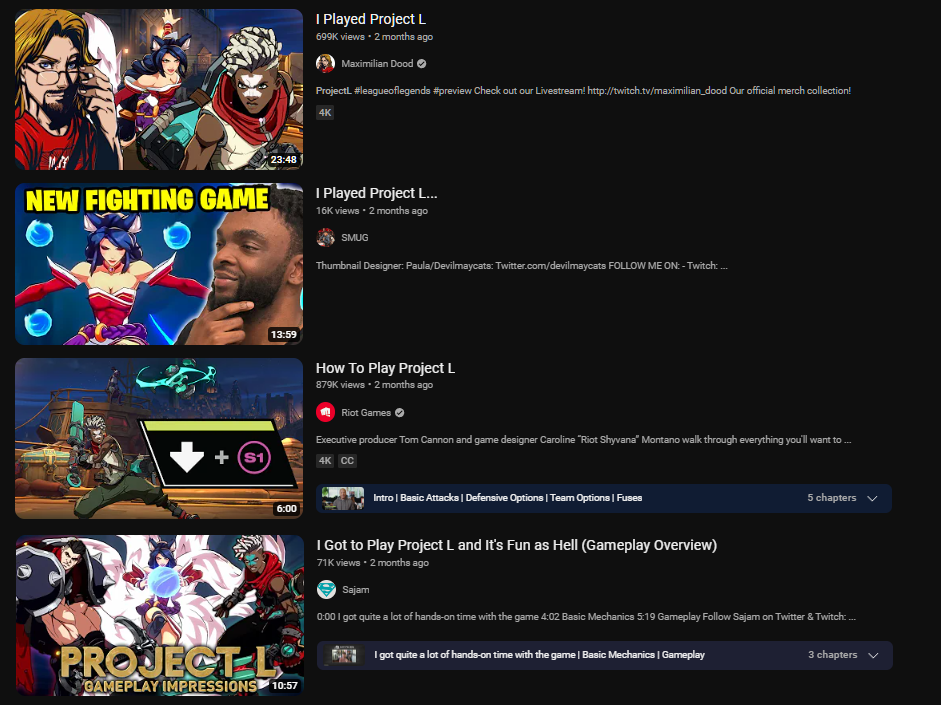Non-disclosure agreements can be tempting to protect your game, but it’s important not to use them improperly. There’s a bit of wisdom that goes around game developer circles, especially with new people who think they have the greatest idea for a game in the world. It’s that your ideas are worthless; what matters is how well you can execute them.
In general, this means that you shouldn’t be too worried about sharing your ideas and getting feedback. A good idea that is poorly executed is a bad game, and even a bad concept can be turned into a great game with fantastic execution.
In spite of execution being more important than the idea itself, there are certain times in game development when you’ll want to protect your ideas and other intellectual property. There are situations where you want to collaborate with an outside artist, hire internal employees, or release information to the media while ensuring that confidential information remains confidential. After all, as an industry based on selling creative works rather than physical goods alone, intellectual property is at the heart of the video game industry. This is where Non-Disclosure Agreements (NDAs) are used.
What is an NDA?
NDAs are not uncommon in the video game industry, but also shouldn’t be used in every situation. They can also be called Confidentiality Agreements, Confidential Disclosure Agreements, or Proprietary Information Agreements, but they all accomplish the same goal. An NDA is an enforceable agreement or contract between two or more parties.
Under a legally enforceable NDA, the signer is legally bound by their promise not to disclose certain information to third parties outside of the terms set by the agreement. If the promise is broken, then the other party can go to court to stop them from further disclosing information or even sue for damages or other legal remedies. NDAs are enforceable documents, though a court found that they can be enforced “only to the extent reasonably necessary to protect the employer’s interest in confidential information.”
NDAs serve a few important purposes. First, they allow confidential information to be shared while minimizing the risk of disclosure to the general public. This can be very useful when working with proprietary technology or when working with a marketing plan that requires announcements at certain times. This allows employees or contractors to have access to confidential information or to prevent former employees from exploiting the confidential information with competitors. As such, they are an essential part of the process of protecting trade secrets.
They can also act as the foundation for a relationship between parties who are working together with confidential information. A well-written NDA can establish expectations about what information is confidential as well as how to handle said information.

In the video game industry, an NDA can have a variety of uses. It can be used for employees or independent contractors who have to work with confidential information, or even visitors to a studio who may see confidential information during their time there.
Specific versions of NDAs can be used for journalists, content creators, or other influencers who get to see games before they are announced or released, or who are required to wait until a certain date (often called a review embargo) to share their impressions. A well-written NDA can even limit which aspects of the game they’re allowed to talk about and help control the pace of reveals to the general public.
They can also be used as part of a lawsuit settlement to keep details from becoming public, which is why you don’t often hear the outcomes of lawsuits, such as with IP owners against fan game creators. In all cases, they exist to define what information is to be kept private, establish expectations about how to handle confidential information, and legally bind the parties to confidentiality.
What is Required to Create an Enforceable NDA?
NDAs are created by contract. As such, they are enforced under state law. A majority of states1 have adopted the Uniform Trade Secrets Act which governs trade secrets and other commercially valuable information. In order to be a valid NDA, it must be valid as any other contract would be.
Like any contract, an NDA is only enforceable if it is drafted and executed properly. This doesn’t involve any particular language or phrases, but it does require that the contract is supported by consideration, which means that signing the NDA was a bargained-for exchange, or that something was received in exchange for the agreement. For example, employment will usually be sufficient to support the contract, or access to the information for a specific purpose that could benefit the signer, such as content creators or journalists.
An NDA may be considered unenforceable under certain circumstances. An NDA that is supported by consideration could be considered unenforceable if it is too broad or restrictive. What is defined as confidential information should be narrowly defined and understood by both parties.
Additionally, NDAs are generally better to be limited in time, enough to protect the information but not so long as to be unreasonable. For example, an NDA protecting information related to a game that hasn’t been revealed yet would be best limited until a certain date, when the information is revealed to the general public.
NDAs are also unenforceable against information that is already in the public domain.
Finally, An NDA can’t ask the signer to do something not permitted by law, like asking someone to remain quiet about some information that they have a legal duty to report.
What Happens if Someone Violates an NDA?
When confidential information does leak because somebody breached their NDA, the other party has a few courses of action. Breach of an NDA is a breach of a contract, so remedies available under contract law become accessible. At the minimum, it would be grounds for termination from employment or the independent contractor relationship.
In the case of a lawsuit, there could be claims of breach of contract, misappropriation of trade secrets, breach of fiduciary duty, or intellectual property law violations like copyright or patent infringement. There could also be a cause of action for financial damages related to the breach. A court could also order an injunction, which could be used to prevent the party from disclosing further information.
In any case, remedies for the violation of an NDA will sometimes require legal action, which can be costly in extreme cases. As such, the greatest value of an NDA is to help parties formalize what is confidential and how information should be kept secure, with legal action acting as a last resort.
Potential Problems with NDAs
There are some potential problems with the use of NDAs. Agreements like NDAs are not perfect protection against the disclosure of information to the public. People can breach contracts. When they do, it costs money in legal fees to enforce them and seek remedies. Additionally, if not properly drafted they can become unenforceable. Even an NDA that is properly supported by consideration and is not overly broad may be practically unenforceable if it is not properly understood by both parties.
If used too often, there is a high likelihood that they will not be tailored to their specific purpose and become difficult to impossible to enforce.
Overzealous use of NDAs can create problems in a working relationship that an NDA is meant to support. When poorly drafted or when insisted on in improper situations, they can sour a relationship before it begins. For example, an aspiring developer with nothing more than an idea pitching to a publisher may not be able to pitch their idea because they insist on an overly broad NDA to “protect” their idea. The last thing you want is to turn away a potential partner or publisher because you insist that your idea on its own is so valuable that it needs extensive NDA enforcement.
On the other side of things, a poorly written NDA by a developer could limit the ability of a contractor to work on a project by limiting what can be shared even with necessary third parties or by improperly defining what is confidential.
Tips for Using NDAs as a Game Developer
It is important for game developers to use NDAs properly. Much of proper use relies on good drafting. Consult with a lawyer to properly draft an NDA tailored to the situation at hand. NDAs are important and should be treated as importantly as the IP they’re meant to protect. They should also be very clear about what is supposed to be protected as well as how. It should not require a great deal of legal education to decipher a well-written NDA, or any other contract for that matter.
The NDA should also narrowly and specifically define to both parties what is protected information and what can or cannot be done with it. Not only are narrowly drawn NDAs more likely to be enforceable but they are also better understood by both parties. Vague blanket statements about what is confidential will often lead to missing essential pieces of protected information.
When considering how long information should be protected, it is important that the time specified be long enough that the essential purpose of the NDA is met without reaching too far into the future. A good example would be an NDA lasting until the announcement of the game or a year after employment.
Your ideas have value, even if the execution is really what matters in the finished game. Take the time to consult with a lawyer on a properly written NDA if needed, but be aware that they don’t fix all of your problems, especially if they’re used overzealously. In addition, if you’re under an NDA, make sure you fully understand what is protected and what you need to be doing to keep that information undisclosed.
Have questions about your own situation regarding NDAs or otherwise? Schedule a free consultation below.
- 47 out of 50, excluding New York, North Carolina, and Massachusetts ↩︎

Leave a Reply